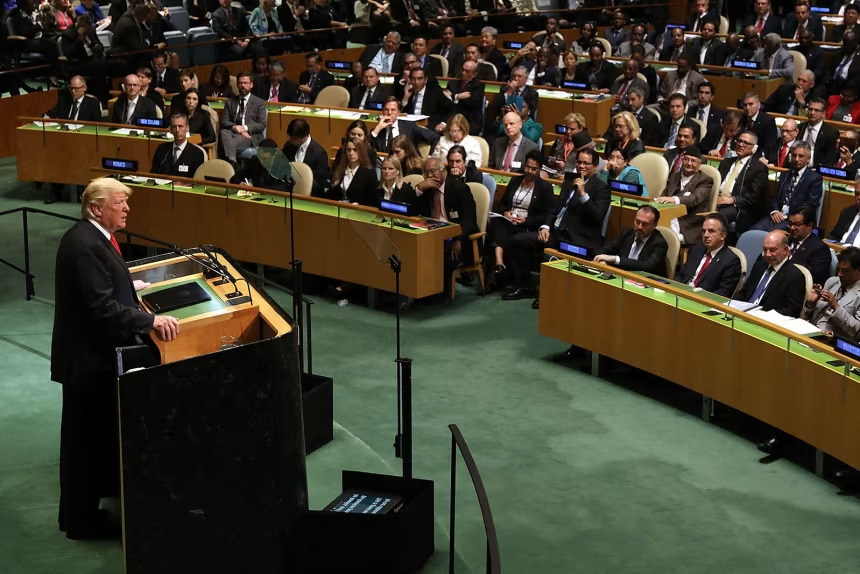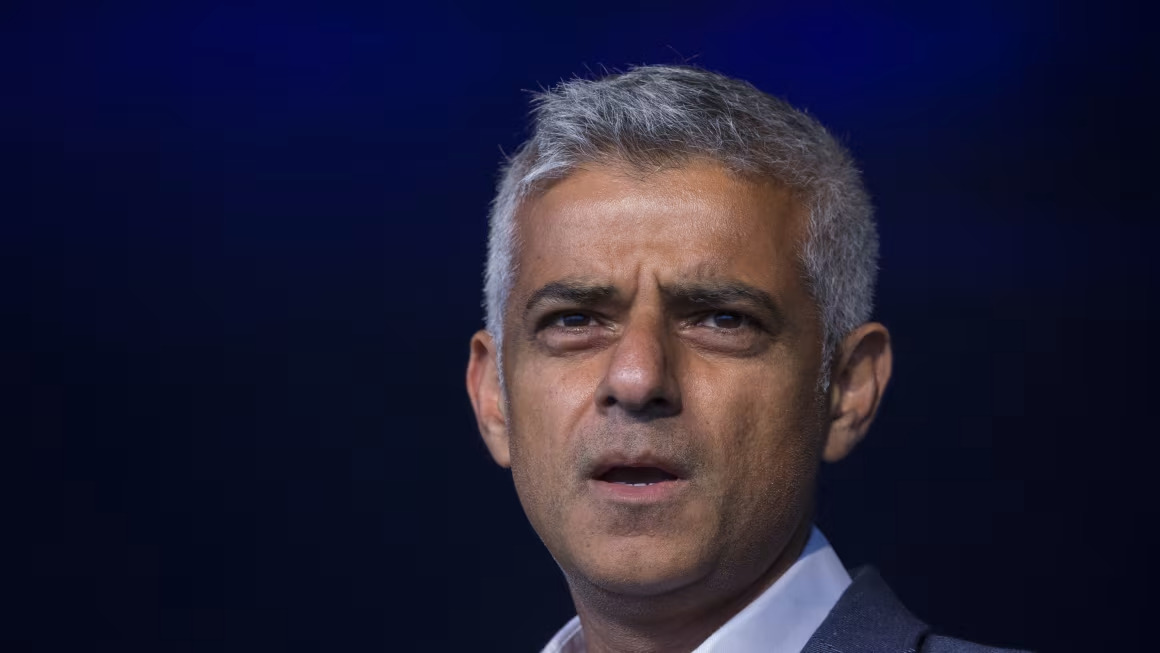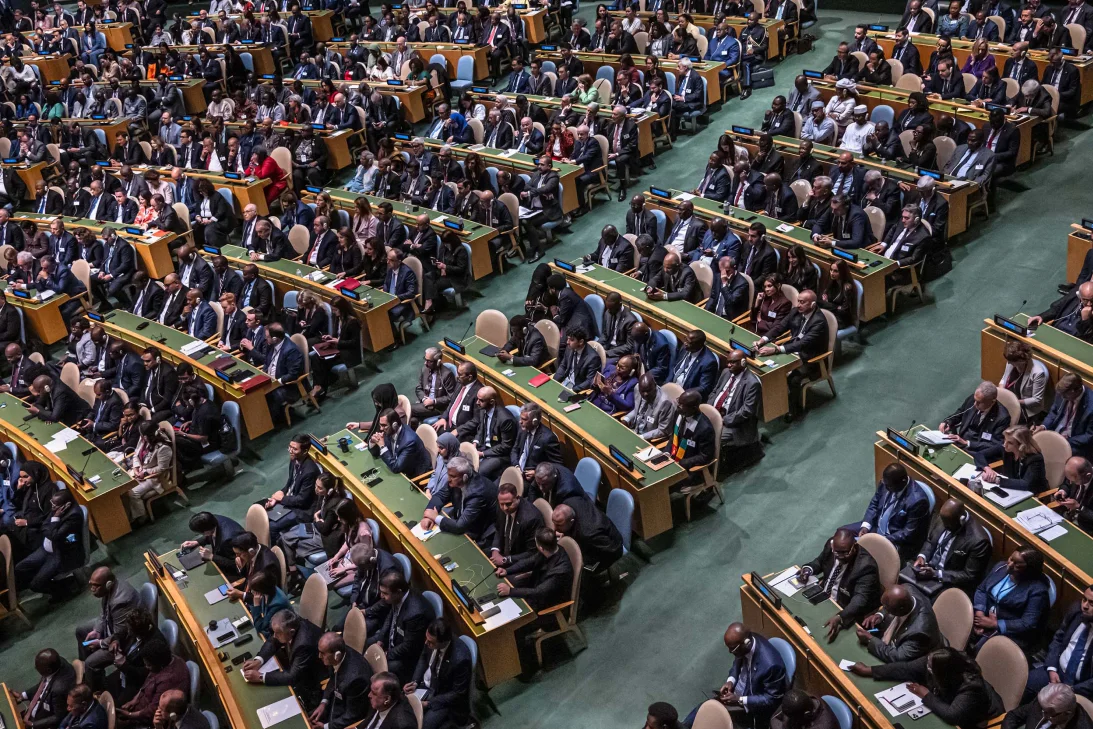"Clash over the false claim about 'Sharia law'."

TEXT : Matt Browney
Sadiq Khan, the Mayor of London, strongly refuted false remarks made by former U.S. President Donald Trump. The issue began with Trump’s speech at the United Nations General Assembly. In his address in New York, Trump characterized London as “a city seeking to introduce Sharia law” and criticized Mayor Khan as “a terrible mayor.” However, this claim is false and unsupported, even according to official documents from the British government.
The next day, standing before reporters with a composed expression, Mayor Khan remarked:
“People are wondering why a Muslim mayor who leads a progressive, multicultural, and successful city seems to live rent-free in Mr. Trump’s head.” His words carried a trace of irony. He went on to hit back strongly, saying, “Mr. Trump is a racist, a sexist, a misogynist, and an Islamophobe.”
Khan’s firm stance has its reasons. As the first Muslim mayor of a major Western capital, he has often been at the forefront of prejudice surrounding race and religion. Born into a working-class immigrant family, he understands well that his very existence is both a symbol of multiculturalism and a potential target of attacks from conservative forces.
In response, then-White House spokesperson Davis Ingle told CNN, “Mayor Khan is suffering from severe Trump Derangement Syndrome. Because of his immigration policies, London is plagued by violent crime.” This showcased a typical Trump-era rhetorical style: attacking the opponent’s character while justifying one’s own position.
Yet, viewed calmly, the claim that “London is introducing Sharia law” lacks any basis. A 2019 report published by the British government explained that while “Sharia councils” have existed since the 1980s, their role is limited to mediating family disputes among Muslims—particularly issues of marriage and divorce—from the perspective of Islamic law. They are not a substitute for the national legal system, much less a framework binding the city as a whole.

The very term “Sharia law” has often caused misunderstandings in Western societies. Rooted in the Qur’an and the teachings of the Prophet Muhammad, it primarily consists of moral guidelines closely tied to daily life—such as prayer, fasting, inheritance, and dietary rules. In the Japanese context, it would be comparable to a blend of “religious precepts” and “customary law,” and does not necessarily equate to harsh punishments or rigid social control. Nevertheless, some Western politicians have exaggerated it as an “oppressive rule governing society” and used it to fuel anti-Islam sentiment.
Trump’s direct attack on the London mayor was driven by his own populist political base. His staunch supporters are prone to believing narratives such as “the crisis of national culture” and “the threat of immigration.” Khan, as a Muslim, a person of color, and a politician embodying liberal values, was an ideal “villain” for Trump.
But this clash goes beyond a personal feud. It highlights the broader confrontation between London’s multiculturalism as a global city and the exclusionary populism Trump represents. In fact, City Hall in London had previously declared with confidence that “London is safer than major U.S. cities and many Americans are moving here.” Embedded in this statement was both “pride in being an international city” and “resistance to Trump’s divisive politics.”

This exchange symbolizes a fundamental challenge facing Western societies: how to position immigrants and religious minorities in rapidly diversifying urban environments. Cities like London, which pursue multicultural coexistence, often face conservative backlash over issues of security and identity. Populism thrives by exploiting this backlash, and Trump’s remarks are a textbook example.
At the same time, Khan’s resolute response demonstrated the dignity of a leader of a multicultural city. His presence symbolizes the hope that “even the child of immigrants can become the leader of a major metropolis,” while also exposing the resistance of those uneasy with minorities in positions of power.
The back-and-forth between the two is nothing less than a condensed snapshot of the tensions modern democracy faces in the 21st century. The clash over the false claim of “introducing Sharia law” is not merely a war of words between the London mayor and the former U.S. president—it reflects the struggle between multiculturalism and populism in the age of globalization.
In today’s world, where fear-mongering words often hold more sway than facts and are amplified through the media, what is needed is calm fact-checking and a continuous effort to embed respect for diversity into society.
